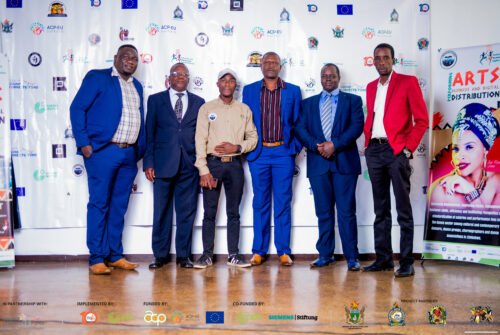Arts Management Business and Digital Distribution (2023)

THE CONTEXT
The dance sector in Zimbabwe has faced several pressing challenges for some time. These issues include inadequate development of skills among dance professionals, lack of social security, lack of financial stability and the need for standardised payment structures for dancers.
High levels of unemployment among artists further exacerbate the social and economic context. This situation is particularly difficult for artists living outside the capital city Harare who face increasingly limited access to opportunities.
THE PROJECT:
PERFORMING ARTS BUSINESS AND DIGITAL DISTRIBUTION The capacity-building project targeted the enhancement of digital management, business skills and the standardisation of salaries and performance fees among cultural and contemporary dancers in Zimbabwe.
The project involved a 15-day capacity training in the Mashonaland region, with participants from various provinces participating in a comprehensive programme. The training covered five modules: management and financial literacy, artistic freedom and decent work, compliance, digital distribution skills and booking tour management.
The project reached out to dance professionals through partnerships with associations like the National Association of Zimbabwe and government ministries, utilising these networks for disseminating information and recruiting participants.
The facilitators for the training were selected based on their expertise and practical experience in the field, with representatives from the National Arts Council of Zimbabwe and managers of prominent dance groups among the trainers. This national programme empowered participants from all 10 provinces of Zimbabwe, with plans to select individuals for further training based on their performance through an exam at the end of the programme
THE THEORY OF CHANGE
The theory of change for this project is anchored in the belief that targeted training and the strategic selection of mentors can significantly elevate the professionalism and sustainability of the dance sector in Zimbabwe. By meticulously choosing mentors with practical expertise and a secure track record in the dance industry, such as seasoned facilitators from the National Arts Council of Zimbabwe and experienced dance group managers, the project ensures that the training provided is practical and directly applicable to the participants’ careers.
The project leverages strong partnerships with government ministries and key arts associations to facilitate the dissemination of information and recruitment of participants. These alliances are crucial, as they lend credibility to the training and ensure that the programme is aligned with the industry’s standards and expectations. Incorporating these elements into the theory of change, the project expects that when dancers, groups and associations are empowered with enhanced business acumen through mentors of high calibre and supported by robust institutional partnerships, they can navigate the professional landscape more effectively.
This support system is projected to improve contract negotiations, standardised remuneration and better working conditions for dancers. As a result, the dance professionals are anticipated to produce quality work that resonates with market demands, leading to increased revenue streams through digital platforms and live performances.
Furthermore, the project posits that a greater commitment to tax compliance and the adoption of decent work principles will contribute to the sector’s development and recognition, thus promoting economic growth and cultural enrichment in the region.
The continued mentorship and further training opportunities affirm a commitment to long-term development, ensuring the project’s impacts are sustainable and that the dance sector in Zimbabwe experiences a transformative shift towards a more structured and equitable industry.
This projected was implemented in 3 regions of Zimbabwe covering 9 provinces and it was funded by Music in Africa Foundation under the Sound Connects Fund.
Follow the link to download the full SCF project report
https://www.goethe.de/resources/files/pdf329/scf-report_2024_a4_online_03.pdf
